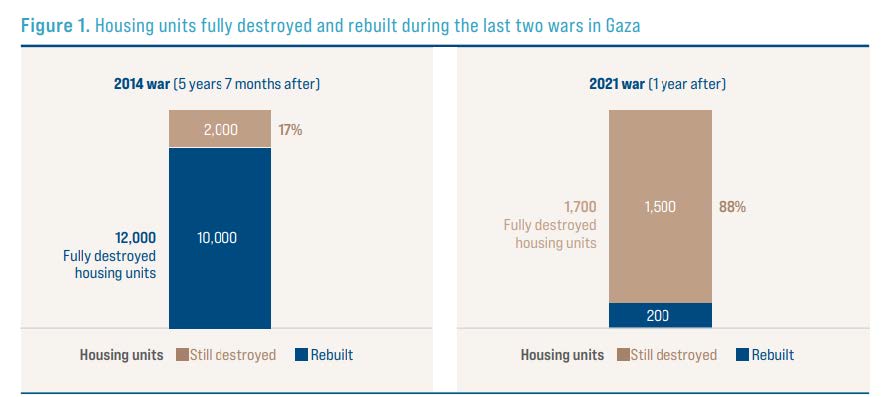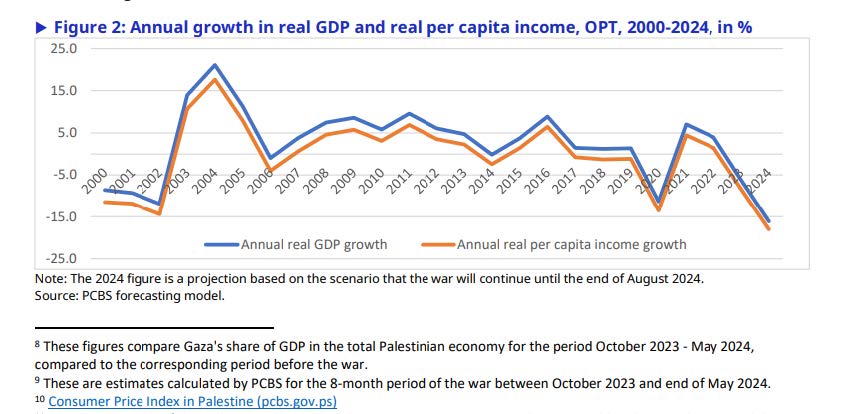Abeer Bibi
Sep 23, 2024
Navigating the Crisis and Recovery of Palestine's Tech Ecosystem
In the face of relentless war, Palestine's tech and startup ecosystem has faced unprecedented challenges. Despite severe infrastructure damage and psychological tolls, local entrepreneurs and freelancers continue to innovate and persevere. This narrative explores the pre-conflict growth, the devastating impact of war, and the crucial steps needed for recovery and development, underscoring the resilience and potential of Palestine tech community.
The Growth of Palestine's Tech Ecosystem Pre-Conflict
Before the recent wave of conflict, Palestine’s tech ecosystem was witnessing a remarkable growth in its tech and startup ecosystem. Gaza, in particular, had become a vibrant hub of innovation and remote work. Young entrepreneurs and freelancers were seizing global online opportunities, with startups making significant strides in programming, design, and digital marketing. Mohammed Qadada, founder of Planet for Digital Solutions, reflects on this period of growth: “Despite the many challenges, Gaza’s tech sector was flourishing. Startups were not only competing globally but also contributing to the local economy by creating new jobs and fostering innovation.”
Moreover, tech-focused programs and incubators, supported by international NGOs and tech firms, created a fertile ground for innovation. Remote work became a lifeline, as the COVID-19 pandemic had accelerated the demand for skilled freelancers, and Gaza was well-positioned to benefit from this global trend.
Impact of the War on Infrastructure and Human Capital mainly in Gaza
Economic Impact
According to the World Bank’s May 2024 report (appendix a), the Palestinian economy is projected to contract by 6.5% to 9.4%. Gaza’s already fragile infrastructure has been further damaged, including the destruction of essential services like roads, power grids, and internet connectivity. The United Nations Development Programme (UNDP), (appendix c), estimates that over $18.5 billion in damage has been inflicted on critical sectors such as housing, healthcare, education, and digital services.
Infrastructure Destruction
The conflict has significantly slowed the reconstruction of vital infrastructure. The UNDP report, (appendix c), shows that approximately 370,000 housing units were damaged during the current war, with 79,000 completely destroyed as of April, 2024. Even under optimistic conditions, where a fivefold increase in construction materials is allowed into Gaza, it is projected that it would take until 2040 to fully reconstruct these housing units.

Unemployment Crisis
Unemployment, already a critical issue before the war, has skyrocketed. Gaza's youth unemployment rate, which stood at 62.6% before the war, has worsened significantly.
By early 2024, over 500,000 jobs were lost across Palestine, including 201,000 in Gaza alone, according to the International Labour Organization (ILO), (appendix d). This job loss equates to approximately 12.3 million Israeli shekels (NIS) in daily labor income losses. Furthermore, 89% of private sector employees in Gaza were already earning below the national minimum wage (697 NIS) before the conflict, pushing many into extreme poverty.

Freelancers and the Workforce
Freelancers, particularly in the tech sector, have been severely affected. Freelancers like Amjad Yahia, a Gaza-based developer working with international clients, highlighted the daily struggle to maintain productivity without reliable electricity and internet access, and he also explained that the constant stress and trauma of working in a conflict zone forced many freelancers into survival mode, impacting their productivity and mental health
The World Health Organization (WHO) reports, (appendix b), a sharp increase in mental health disorders, with over 485,000 Gazans affected by conditions such as anxiety, depression, and PTSD due to prolonged conflict exposure. The long-term psychological effects on the workforce, especially tech professionals, are profound and cannot be overstated.
Economic Outlook
According to ILO report (appendix d) and under a scenario assuming the war would continue until August 2024 (which happened), Gaza’s GDP is projected to decline by 16.1%, while per capita income is expected to fall by 18%, marking the most significant decline in over two decades.

Moreover, a report by the Palestinian Economic Policy Research Institute (MAS), issued in March 2024 (appendix e), presents a bleak economic forecast, highlighting a sharp rise in inflation. The Consumer Price Index (CPI) increased by 33% in the fourth quarter of 2023, primarily driven by supply chain disruptions caused by the ongoing conflict.

Effects on the West Bank Ecosystem
While Gaza has experienced the most severe devastation, the West Bank has also faced significant challenges, particularly in its tech sector. According to the World Bank report (appendix a), the Palestinian Authority’s revenue has sharply declined due to several factors:
1. Reduced clearance revenue transfers.
2. Increased Israeli restrictions on movement and access.
3. Suspension of employment opportunities in Israel: The International Labour Organization (ILO) reports (refer to UNDP Report, Appendix C) that 160,000 workers from the West Bank have lost their jobs or are at risk due to restrictions on accessing the Israeli labor market and the closure of crossings. Since the conflict began, Israel has issued only 8,000 temporary work permits for West Bank workers.
4. Frequent raids.
These issues have created a substantial financial gap between available funds and the needs for essential public services, resulting in a financial crisis.
Job Losses and Economic Impact
Since October 2023, nearly half a million jobs have been lost across Palestine. This includes approximately 200,000 in Gaza, 144,000 in the West Bank, and 148,000 among cross-border workers from the West Bank who previously worked in Israel. The West Bank’s tech sector has been particularly hard-hit, struggling to stay operational amidst increasing restrictions and worsening security conditions.
The future of the West Bank economy in 2024 is unclear and heavily depends on how long the war lasts, ongoing challenges, and any possible shifts in Israeli policies. As a result, the economy is projected to shrink by 6.5% to 9.4% this year, according to the World Bank report (appendix a).
Data from the Palestinian Central Bureau of Statistics (PCBS) shows a 5.5% economic contraction in 2023, equivalent to a $1.8 billion loss. This trend is further illustrated in a graph by the Palestine Economic Policy Research Institute (MAS) (appendix e).

Impact on businesses in the West Bank
The report issued in June 2024 (appendix d) by the International Labour Market highlights the impact of the war on West Bank businesses. A survey of 700 companies showed that 98.8% of businesses have been negatively affected. These businesses face challenges such as reduced sales, loss of customers and suppliers, lower production capacity, supply chain issues, and higher transportation cost

Steps Needed for Recovery and Development
To aid in the recovery and growth of Gaza and the West Bank’s tech sectors, several crucial steps must be taken:
Focus on the Tech Ecosystem
1. Rebuild Essential Infrastructure: Restoration of electricity, internet, and roads is crucial for creating a stable working environment for tech startups and freelancers.
2. Provide Financial Assistance: Financial relief through grants, loans, and subsidies is needed to help businesses recover and replace lost equipment.
3. Expand Networking Opportunities: Creating platforms and events for local tech professionals to connect with international clients and investors will facilitate growth and new opportunities.
4. Enhance Mental Health Support: Offering mental health resources, including counseling and stress management programs, is important for maintaining productivity and well-being.
5. Strengthen Institutional Support for Startups: Increasing support programs for startups, including mentorship and business development resources, will help them navigate challenges and scale operations.
6. Invest in Skill Development and Training: Funding training programs and educational initiatives to enhance technical skills and capabilities will ensure a strong and adaptable workforce.
7. Foster International Collaboration: Building partnerships with international tech firms, NGOs, and development agencies will bring in expertise, resources, and market access, accelerating recovery and growth.
